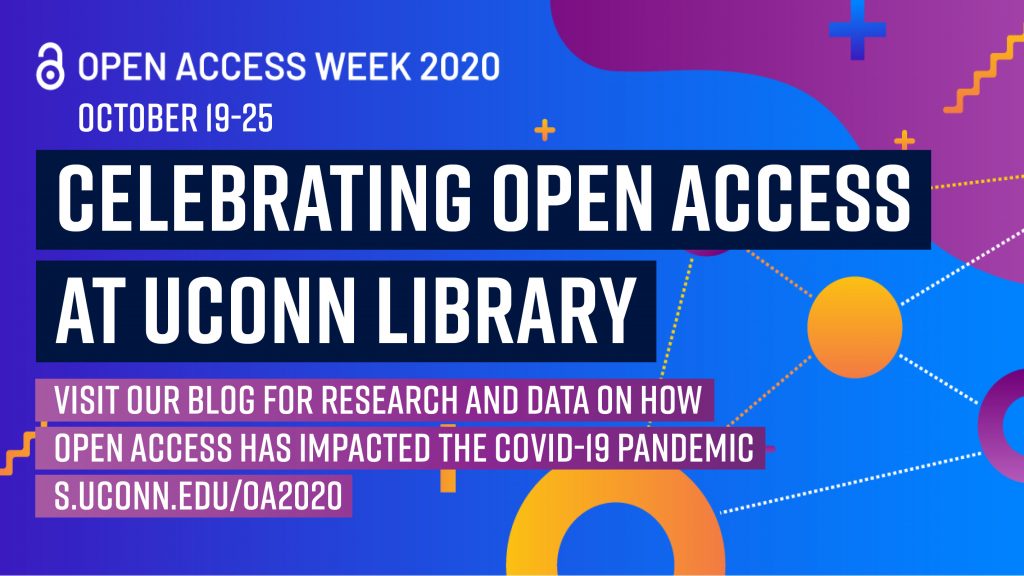In celebration of Open Access Week 2020, this is the fifth and final blog in a series written by the UConn Library Scholarly Communications Coordinating Group (SCCG) to explore how Open Access has impacted the COVID-19 pandemic. To learn more about the SCCG and find more resources, see our Scholarly Communications webpage.

As the novel coronavirus has spread across the globe, it has sparked comparisons to past global health crises, such as the influenza pandemic of 1918-1919. Seeking to make sense of the pandemic’s impact, scholars, physicians, public health officials, and journalists alike have turned to the past, drawing upon historical accounts and knowledge of these past events to inform our response today.
Archives, libraries, museums, and agencies around the world have developed open collections of historical resources and primary sources related to global pandemics, epidemics, and other public health crises. From governmental, political, and public health actions to personal accounts, these freely accessible resources provide important insight and context into how societies responded to and learned from these events, helping us to not only understand our current environment but also to better prepare for the future.
Resources:
- International collection of digitized governmental resources, medical research, and other primary sources related to the 1918 influenza pandemic (Hathi Trust)
- Guide to UK primary source collections on the influenza pandemic and other epidemics (Archives Hub)
- Selected records from the US National Archives on the 1918 influenza pandemic
- Photographs, reports, and other records related to the influenza pandemic (DocsTeach)





